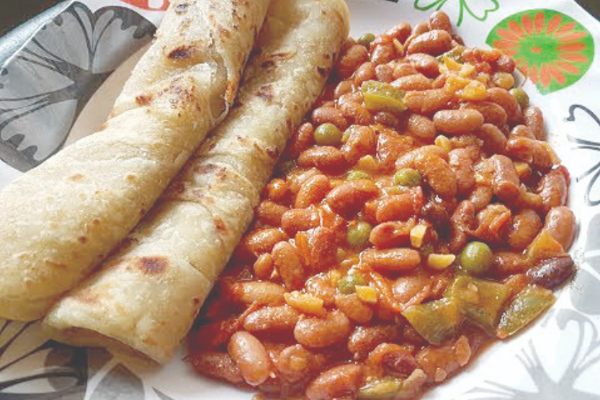Open kiosk food appeals to lowly, mighty in society

Mama Health’s kitchen is often in a state of controlled chaos as early as 11am as she moves briskly between big bubbling pots of meals and packing food, which is immediately whisked away by on-standing women.
The women zigzag the city centre with the food parcels in hand, moving in and out of buildings, delivering food to hungry Kenyans confined in offices. They are paid Sh25 per unit delivered.
“I make food that is delivered by 16 women across town and beyond. The women have established a lasting relationship with people in offices, business complexes, matatu drivers and security guards,” says Martha Kimani, who runs Mama Health enterprises.
Mama Health enterprise is a small-sized food venture operated from two- modest rental units in the central business district’s periphery. The business is in its third year having started from Kimani’s home kitchen.
“In 2017, I started cooking from home and delivering food around town. Then I realised that more people were asking for the meals, so I got a small space within town,” Kimani says.
An explosion of clients would soon see her relocate to her current location where she sells as many as 600 units of packed lunches per day.
Her food offerings are diverse to meet different taste bands. They range from green grammes, hyacinth (njahi), managu and her client’s favourite -pilau. Others are tea, meat varieties, and mandazi among others.
Small food vending businesses are ubiquitous, particularly in urban settings. Their hallmark is fairly priced meals, modest cooking locations, skeletal manpower and low operating costs.
Diversity in need
A while back, they appeared to attract solely those at the bottom of the economic ladder, but as inflation digits rose and eating cultures evolved, more and more people began drifting towards street food, especially the money-conscious.
At present, street food or kibandaskis have taken different forms; some like Kimani’s are advanced distributing foods far and wide while others have retained the traditional quaintness.
Pamela Andanyi has worked in food vending business since 2019. She says people prefer eating in small hotels because they trust the cleanliness of the food and vicinity.
“Clients can see what we are doing because we are not hidden unlike in big hotels,” shares Andanyi.
Joseph Ndegwa, a banker and one of Andanyi’s return customers, says he prefers kibanda food to hotel food.
“It is affordable. If I am eating a plate for roughly Sh100 every day for five days from a reasonable place like this, then it makes more sense than eating from a place that sells for Sh400 every week,” Ndegwa adds.
Kibandas in prime locations
A visual assessment of popular financial hubs such as Upper Hill, and Westlands reveals a proliferation of informal eating avenues overtly tucked between beautifully towering skyscrapers.
Even with an impressive hotel and restaurant boom, such locations have pitifully failed to net all their occupants most of whom are middle-income earners. Upper Hill, for instance, has Crown Plaza and International hotelier Raddison Blue both of which may be out of reach for many people.
As soon as the clock strikes 1pm, cheaply constructed eating parlors teem with working men and women clad in glossy suits. They sit on wooden benches each enjoying a plate of their favourite food before they dash into their offices.
Food riders and on-foot food deliverers such as Joy Chela are also spotted in these prime locations bearing food prepared from a remote location.
“The food I deliver is usually made in a kitchen in town. My workers and I get orders to deliver food at Upper Hill, Westlands. The orders are usually consistent – every day I get an order from the same customer,” says Chela.
Rented kitchen spaces are growing in numbers as business-savvy Kenyans move in to capitalise on the growing demand for “street food”. Around the globe roundabout alone, People Daily counted more than 15 people operating a kitchen.
“You just need a small area where you can cook, wash dishes and put the food together. No need for people sitting around,” says Lucy Ngina who operates a kitchen in Ngara Market
It remains undeniably evident that the food vibanda economy will continue to thrive in the future, after all, it is a hustler’s world.












